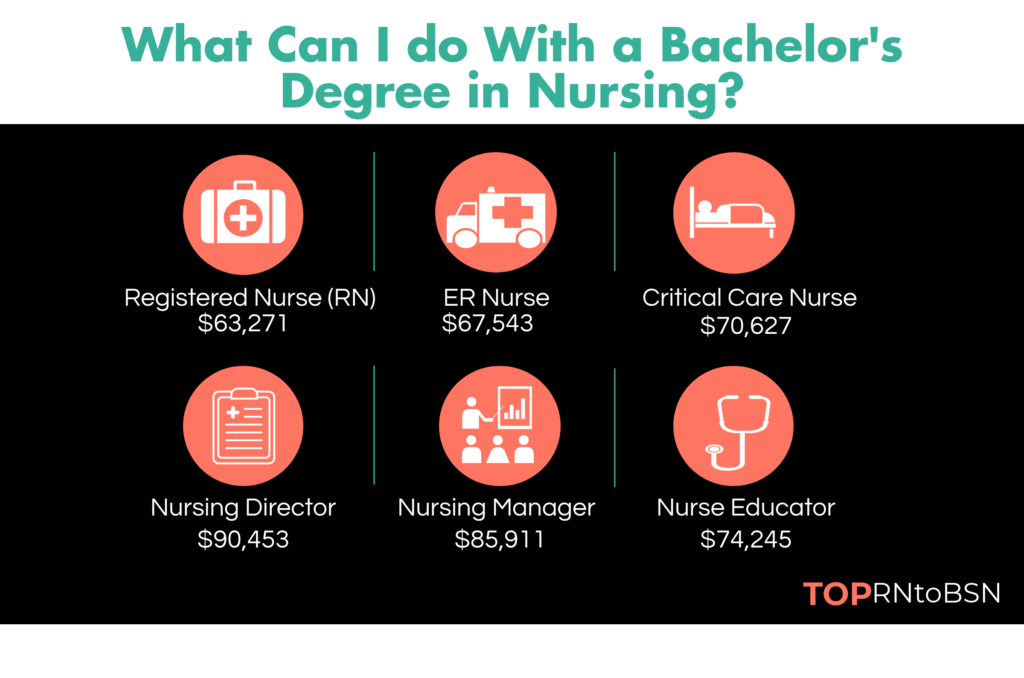
US Nursing Shortage
The nursing shortage in the United States has worsened in recent years. Studies are being conducted to not only determine the causes but also to find effective nursing shortage solutions. Staffing shortages in healthcare are worse in certain regions, more so than in others. The main concern about a reduced nursing workforce is that patient care will be impacted. Multiple research studies have confirmed a direct correlation between nursing shortages and higher mortality rates in hospital settings.
What Can You Do With a BSN?

What are the Causes of the Nursing Shortage?
A key cause of nursing causes has been aging out of nurses from the baby boomer generation. As baby boomers enter retirement, many nursing positions have opened up around the country. It is projected by the year 2029 the last of the baby boomer generation will be eligible for retirement. Besides direct care nurses, the shortage will extend to nurse educators. With fewer nursing teachers, there will be fewer available faculty to train prospective nurses.
Nurse Burnout and High Turnover
A high nursing turnover rate is also a contributing factor to the nursing shortage. Nurses tend to burn out from the high demands of the job and long-scheduled shifts. The average turnover rate for registered nurses was more than 17% as of 2018. Specialty areas of nursing show the impact of the turnover rate related to environmental stress. Nurses who work in behavioral health, telemetry, and emergency medicine had an average turnover rate above 19% in 2018. Conversely, nurses working in burn centers, women’s health facilities, pediatrics, and surgery centers have the lowest specialty turnover rate. With fewer nurses, job satisfaction will decline since inadequate staffing increases nurse workloads and stress.
Nursing Shortage by Location
Location is another factor when evaluating the nursing shortage in the United States. Currently, the following states have the greatest number of vacant nursing positions: California, Texas, New Jersey, South Carolina, and Alaska. The disparities between supply and demand for nurses in these states will continue to grow.
The need for more nurses is another reason for the national nursing shortage. As the baby boomer generation grows older, we need an increasing number of nurses to care for elderly patients. The American Nurses Foundation estimates there will be a need for at least 11% more nurses.
Highest Demand Areas for Nursing Shortage By State
Violence Against Nurses
Lastly, violence is linked to healthcare workers. In medical settings, healthcare professionals are often treated aggressively by patients. Nurses may be the targets of verbal or physical abuse by patients. According to the World Health Organization, 8% to 38% of all healthcare workers around the world have suffered some form of violence over the course of their careers.
What are the Solutions to the Nursing Shortage?
Nursing schools, medical organizations, state agencies, and non-profits have all made strides toward developing nursing shortage solutions.
Financial Assistance for Education
In Wisconsin, the state has offered loan forgiveness and grants to attract more nursing students to regional colleges.
Flexible Degree Programs
In addition, national universities are changing their educational programs to help nurses earn higher degrees while still working. The degree tracks allow registered nurses to get their BSNs and MSNs by attending online courses and making clinical hours within their geographic locations.
Employer Initiatives
Healthcare agencies can also assist with addressing the nursing shortage. Employers can start employee initiatives to alleviate everyday job stressors. For instance, hiring more medical assistants can help reduce a nurse’s workload. Adding new technology that makes a nurse’s job easier could also reduce on-the-job stress. These organizations also recommend more nurse incentives.
For instance, employers can provide paid training sessions, school loan reimbursement, and promotion internally. So, the good news for prospective nurses is finding a job isn’t challenging. Moreover, nursing students may even get assistance paying for their education.
Related:






